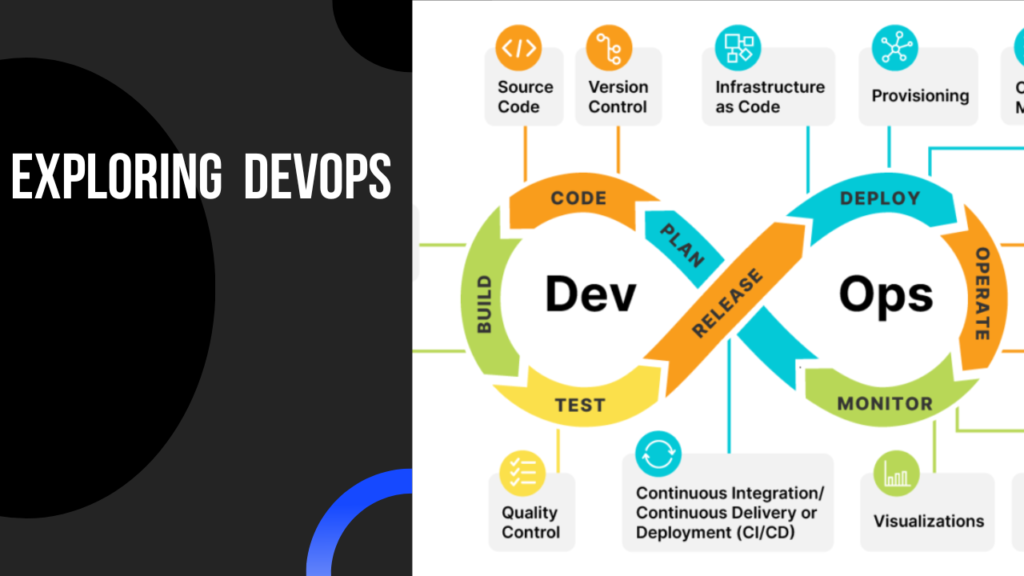Exploring DevOps: Automation, Scaling, and Team Collaboration
In the rapidly evolving realm of software development, agility and adaptability are paramount. Enter DevOps, a fusion of “development” and “operations,” serving as both a philosophy and a set of practices to attain this agility. Yet, what truly defines DevOps? Is it merely about automation, scaling, and managing infrastructure? While these components hold significance, genuine DevOps transcends technical tools, embracing a cultural transformation rooted in collaboration and collective responsibility. In this article we are exploring devops.

Breaking Down the Fundamentals:
At its essence, DevOps strives to bridge the divide between traditionally segregated development and operations teams. Developers craft code, while operations oversee its seamless deployment and maintenance. However, this traditional separation often results in bottlenecks, communication barriers, and protracted release cycles. DevOps dismantles these barriers, cultivating a continual flow of communication and collaboration across the software lifecycle.
Embracing the Power of Automation:
DevOps places considerable emphasis on automation to streamline manual tasks and enhance efficiency. This includes:
- Continuous Integration (CI): Automating code testing and integration after every change, ensuring early identification of issues.
- Continuous Delivery/Deployment (CD): Automating the deployment process, facilitating frequent and reliable releases.
- Infrastructure as Code (IaC): Treating infrastructure akin to code, enabling automated provisioning and management.
Scaling Confidently:
DevOps practices simplify and optimize the process of scaling applications. Imagine the need to rapidly expand servers to accommodate heightened user traffic. With IaC, a simple update to the code defining infrastructure needs triggers the automatic provisioning of additional resources. This adaptability proves indispensable for responding to dynamic market demands.
Beyond Tools: A Cultural Revolution:
While automation and infrastructure management are pivotal, the true strength of DevOps lies in its cultural metamorphosis. It advocates for:
- Shared Responsibility: Both development and operations teams take ownership of the entire software lifecycle, fostering accountability and shared success.
- Continuous Learning: DevOps encourages experimentation and feedback loops, resulting in perpetual refinement and innovation.
- Collaboration and Communication: Regular communication and shared objectives dismantle silos, accelerating problem-solving and decision-making.
Why DevOps Holds Significance:
The advantages of DevOps extend well beyond technical efficiencies. By breaking down silos and promoting collaboration, DevOps leads to:
- Swift Time to Market: Frequent and dependable releases empower businesses to promptly adapt to market shifts and customer requirements.
- Enhanced Quality: Early identification and resolution of issues contribute to superior quality software with fewer bugs.
- Augmented Reliability: Automated processes and proficient infrastructure management ensure consistent performance and availability.
- Improved Collaboration: Teams gain insights from one another, fostering a positive and productive work environment.
DevOps: Not Just a Fad, but a Fundamental Transformation:
DevOps transcends being a mere toolkit or a set of practices; it embodies a cultural shift that champions collaboration and perpetual enhancement. By embracing automation, scaling, and shared responsibility, businesses can unlock the genuine potential of their software development endeavors, delivering high-caliber solutions swiftly and reliably. In the contemporary competitive landscape, adopting DevOps is not merely a choice but an imperative for businesses to flourish in the ever-changing digital landscape.
Related Articles:
- What is DevOps? How to become a Devops Engineer
- Latest Web Development Courses To Make You Pro Developer
- Kubernetes for Beginners tutorial
- Docker tutorial for beginners
 Best Tech Blog For Programming Articles And Video Tutorials Code Is Easy
Best Tech Blog For Programming Articles And Video Tutorials Code Is Easy
